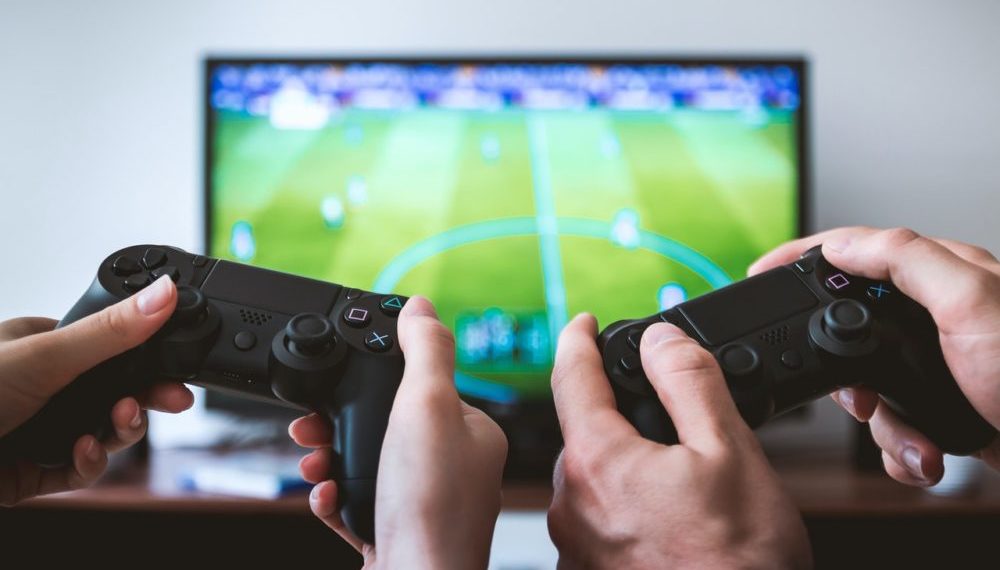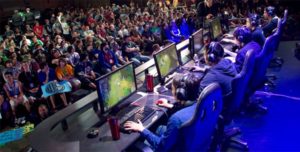M+E Daily

EES 2021: Like it or Not, eSports Could Impact the Future of All Sports
Story Highlights
The eSports category is only growing in popularity and represents a big part of the future of sports, according to panellists from the world of eSports and traditional sports, who spoke 21st July, during the session “The Future of Sport and Community through the Lens of the Olympics,” at the Entertainment Evolution Symposium (EES).
Meanwhile, with the Summer Olympics about to start after a one-year delay and with the pandemic as the catalyst, more emphasis is being placed on community than ever. The timing is also critical as the Olympic Games are scheduled to arrive in 2028 to Los Angeles and California’s communities are expected to be positively impacted in the years leading up to the event.
Combine that with featured audiences, youth engagement and social interaction and there is a technology opportunity in utilising the world’s greatest sports stage to further the goal of global community engagement.
Moderator Alicia Jessop, associate professor of sport administration at Pepperdine University, kicked off the EES session by pointing out that eSports participation and consumption grew during the COVID-19 pandemic.
We are in the “fourth industrial revolution” and, “as a consequence of that, the whole notion around artificial intelligence and mobile and Internet of Things and this whole incredible technological age that’s embraced these immersive new technologies” is playing a key role, according to Paul J. Foster, CEO of the Esports Federation and former head of events and hospitality at the International Olympic Committee (IOC).
And then “along comes the pandemic and hits the accelerator fast and hard … [as] all the traditional sport froze,” he said, noting many of the people who loved sports and community didn’t have traditional sports for several months.
 eSports was growing fast before the pandemic but 2020 was “kind of like a fuel-injected year” because COVID “expedited the growth” – and not just with the traditional generations that have gravitated to it but also among older people, according to Christina Low, COO of Oakland Roots Sports Club and former head of broadcast partnerships for the IOC.
eSports was growing fast before the pandemic but 2020 was “kind of like a fuel-injected year” because COVID “expedited the growth” – and not just with the traditional generations that have gravitated to it but also among older people, according to Christina Low, COO of Oakland Roots Sports Club and former head of broadcast partnerships for the IOC.
The social component of eSports has been a big factor because many people were usually stuck at home during the pandemic, she said, adding increased access to the Internet and eSports tournaments has been a factor also.
One different component of eSports vs. traditional sports is that people from different countries can be competing against each other in eSports while they are all actually in their own countries, Jessop pointed out.
There has also been more acceptance of and interest in eSports among traditional pro sports organisations, according to Foster, who defines eSports as simply “organised competitive video games.”
While soccer with FIFA and basketball have been fully immersed in video games and eSports for a while, “a lot of the sports had never looked at it – some really hesitated [and] like almost definitely said ‘absolutely not – never ever,’” he said. But staring out at an empty stadium “makes you think about the future of your sport,” he added.
Meanwhile, the global reach of eSports “closes the gap to interconnectivity” and exposure to people from different cultures and backgrounds, Low said, noting it “really banishes the whole discussion about” not knowing anybody in other countries. You are also often playing with those other people from other countries on the same side as you, she pointed out.
At this time, we have moved from the industrial revolution to digital and “we’ve now moved towards machine learning and artificial intelligence and all the other technologies that are afforded to us,” according to Foster.
Three years ago, we went to an event and only watched that event, he said. Now, we watch the event and also use social media, he noted.
A lot of brands are trying to figure out how to best engage with eSports audiences without being able to talk to them like they can at live events, he also said, adding more data can help.
Agreeing, Low said “it’s all about data.” Traditional sponsors are still trying to “navigate” the eSports arena to figure out how to enter it, she said, noting it is challenging for many companies to transition their brand messages to appeal to eSports and video game audiences.
Organisations need the right education about the sector and they need to think about the data they want now and the target data they want to get to, she said.
“It becomes a long-term partnership after that,” she told viewers, adding: “I can’t see how sustainable it is to have a short-term partnership with someone in the gaming world let alone the eSports world.”
 While e-commerce has become an important factor, a major trend in the sports sector overall now is partnerships rather than traditional sponsorships, according to Jessop, who said: “You have to be an engaged partner.”
While e-commerce has become an important factor, a major trend in the sports sector overall now is partnerships rather than traditional sponsorships, according to Jessop, who said: “You have to be an engaged partner.”
There are additional challenges. For instance, there is still a lot of work to be done in interconnectivity in Africa and developing countries when it comes to mobile phones and 5G availability, Foster said. One major trend when it comes to technology today, meanwhile, is that everything is getting faster and smaller, he noted.
Among the big takeaways for Jessop: “Listen, lead with values and engage yourself in the community – and we can always use more development of the cloud,” she said while wrapping up the session.
The Entertainment Evolution Symposium event was produced by the Hollywood IT Society (HITS), Pepperdine’s Graziadio Business School, and MESA. The event was sponsored by Whip Media, PacketFabric, 5th Kind, Qumulo, EIDR, Klio and the Trusted Partner Network.









